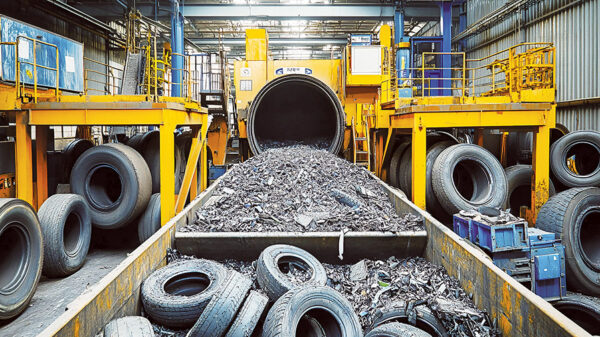A new report called “No Time to Waste: Tackling the Plastic Pollution Crisis Before it’s Too Late” and released by Tearfund looks at the relationships between poverty, human health effects and the lack of waste management systems in developing regions.
The American Chemistry Council (ACC) released the following statement, which may be attributed to Steve Russell, vice president of ACC’s Plastics Division:
“Unmanaged waste is an urgent problem, and America’s Plastic Makers are deeply committed to working with governments, scientists and nonprofits to help bring about meaningful solutions. Major plastics producers recently partnered with companies from across the plastics value chain to establish the Alliance to End Plastic Waste, which aims to provide $1.5 billion USD to help keep plastic waste out of the environment. The Alliance has adopted a comprehensive strategy to catalyze investment in waste management infrastructure, innovation to minimize waste and improve recycling, reuse and recovery rates for all types of plastics, education, and clean up—all focused on the areas of the world where the challenge is greatest. The Alliance is based on the principle that through collaboration we can help end plastic waste in the environment in a way that helps make communities cleaner and healthier, while also creating opportunity and encouraging economic development.
“We share the goals and commitment of this study’s authors. However we question the report’s methods and believe the characterization of the report’s findings is misleading. The report itself attributes health impacts to all types of municipal solid waste – organic, paper, cardboard, metals, glass and plastics. Organic waste, in particular, is more likely to contribute to various health effects cited in the report and studies show that it makes up a large portion of unmanaged waste.
For example, according to a study by the World Bank, over 40 percent of the waste flowing through Indonesia’s rivers is food and other organic waste, and the remainder includes a range of health and hygiene products, among other things. And a separate study from the World Bank Group found that plastics constitute only a small fraction (6.4 percent) of waste in low-income countries.
There is no question that dumping of waste in streams and rivers, on roadsides or open spaces, and open pit burning of waste is neither healthy nor sustainable. All segments of society must work together to reduce waste and enable responsible, effective waste management solutions in all regions of the world.
With the world’s population expected to reach 9.8 billion by 2050, society will increasingly rely on strong, lightweight plastics to deliver more food, clean water, hygiene and medical supplies to more people in more places, with lower greenhouse gas emissions than alternative materials. While discussions on this report will surely focus on the most controversial and disputed conclusions, plastic producers will continue to focus on being part of the solution to some of the world’s most significant sustainability challenges.”
Published in the June 2019 Edition






